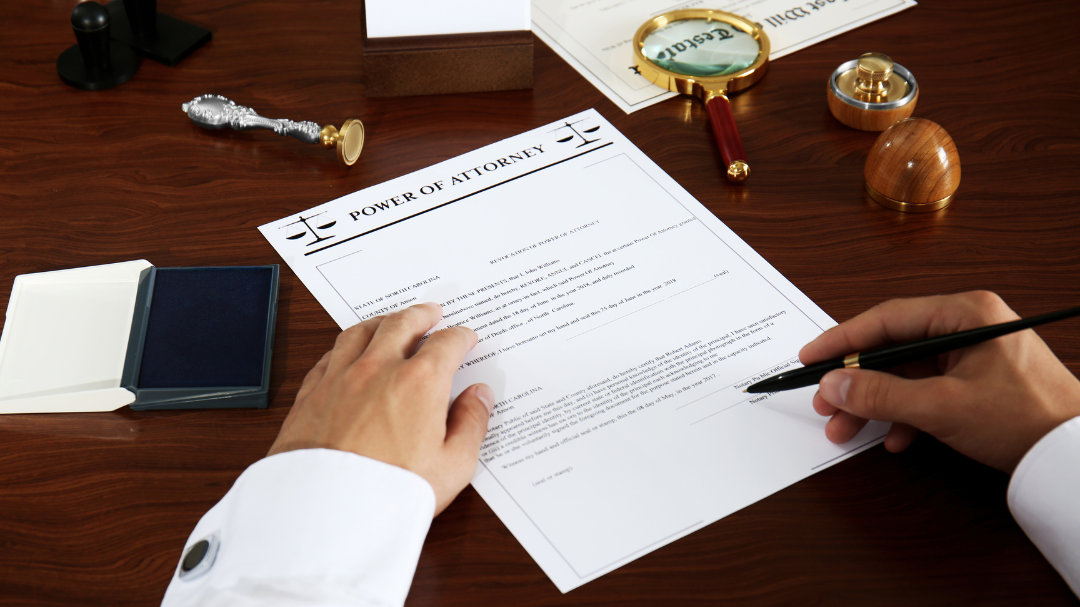
What do you do if you have a task concerning legal or financial matters, but it just so happens that you’re currently in another city or country or that you’re ill, so you aren’t in the position to accomplish it? If the task in question is time-sensitive,you might find it hard-pressed to get things done. Thankfully, you would still be able to accomplish your tasks if you authorize someone to do them for you.. All you would need is a Special Power of Attorney. Here’s everything you need to know about this legal document.
What is a Special Power of Attorney?
A Special Power of Attorney (or SPA for short) is a document that allows one person to act on behalf of another person. These usually include major legal, property, or financial decisions. During the SPA’s effective period, the person authorized to carry out the action is called the agent. Meanwhile, the person granting the agent the authority to act on his or her behalf is called the principal. The document must be notarized to take effect.
Anyone of legal age and who has the capacity to act on the principal’s behalf can be appointed as an agent, as long as they have the principal’s full trust.
You don’t need a SPA for everything you need done for you. Private matters, such as buying furniture on your behalf or taking your child to school, don’t require an SPA. It’s best to get one if you’re dealing with matters regarding real estate, legal matters, transactions with private corporations, or tasks in government offices.
When do you need a Special Power of Attorney?
There are many reasons why you might need an SPA to allow someone else to handle your affairs. One common reason is illness. If your medical condition prevents you from performing such actions yourself, you can authorize someone capable and trustworthy to do it for you.
You may also need a Special Power of Attorney if you’re currently abroad, which bars you from performing these actions yourself. In that case, you can appoint an agent in the Philippines to accomplish all your tasks. Note that instead of the usual SPA which simply needs notarization by a Notary Public where the said SPA is executed, you would instead need a consularized SPA. The difference between a normal SPA and a consularized SPA is that since you are signing it abroad, the SPA cannot be simply brought to the Philippines for notarization before a Notary Public and it can only have legal effect if it is consularized. You can get the SPA consularized in the Philippine Embassy. Also, if you’re residing abroad, you might have heard of the term “apostille”. You can also have the SPA apostilled in the relevant government offices in your locality, which produces the same effect as consularization.
How do you get a Special Power of Attorney?
The process of getting a Special Power of Attorney document is fairly simple. First, you can find several available templates for the document online. Look for one that is both presentable and capable of conveying which powers you want to grant to your agent.
Alternatively, you can also write your own SPA instead of looking for a template. Keep in mind the necessary details you need to include when drafting your document:
- Name, nationality, civil status, and address of the principal
- Name, nationality, civil status, and address of the agent
- Tasks of the agent
- Date and place where the principal will sign the SPA
- Principal’s signature
- Agent’s signature
- Signature of two witnesses
- Acknowledgment from the Notary Public
Once your SPA document is complete, print out three copies: one for the principal, one of the agent, and one for the Notary Public. After that, all you need is to go to the Notary Public for notarization. Be prepared for the notarial fees; these could range from P500 to P1,000.
A Special Power of Attorney is crucial if you’re unable to accomplish an important task by yourself. Thankfully, the process of getting one is quite simple, easy, and inexpensive. By knowing this information, you’ll be able to get your SPA document without any issues.

